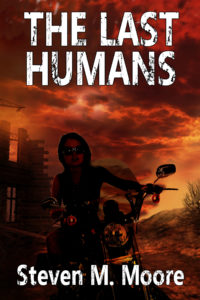Writing for Hollywood…
Screenplays—who’s writing them? I’ve often said in these blog pages that many good movies are adaptations of a good book into a screenplay. They can also come from screenplays where the author(s) are good at storytelling. But can a screenplay be written by someone who can’t write?
Apparently—and those screenplays often lead to bad movies, ones without much of a plot and with characters who seem to be wooden caricatures of humanity. And a movie is often just an audiovisual spectacle without themes or substance.
Film is a complicated media. The two hours of a typical movie hinders good storytelling in general. How do you shoehorn a good story into two hours? I can’t do it. I wouldn’t even try. When I see a movie where it’s been done, I’m amazed. Most of the time I see failures.
Maybe short stories lead to better movies? Most of the Phillip K. Dick stories that were made into movies—Blade Runner, Total Recall, The Adjustment Bureau, and so forth—came from shorts. Compare those original Star Trek episodes to the drivel in Star Trek: The Next Generation and those of the other TV shows in the franchise. Guess what? Most of those original episodes were based on short stories written by real sci-fi writers—Theodore Sturgeon, Richard Matheson, Harlan Ellison, and so forth—or by Gene Roddenberry, who had good storytelling skills. Sure Kirk was an atypical, womanizing captain, while Jean Luc was more sedate, commanding his Number One as a true ship’s captain. But those first episodes were great. Ellison’s “The City on the Edge of Forever” is a classic.
The other night I rewatched King Solomon’s Mines, starring that Dr. Kildare guy and a giggly, silly Sharon Stone. It was a bumbling farce that never captured the wonder that I had reading the original novel, one that predated Indiana Jones by decades—Indy owes more to the book than that movie, although I’ll have to admit some of that old score often sounded like John Williams’s.
Is it worse to start with a good story and ruin it by turning it into a terrible screenplay (let’s not mention what often gets left on the cutting room floor) than just writing a bad screenplay to begin with? I don’t know. But I often wonder if screenwriters have the skills to tell a good story. The results are so often disappointing.
Or maybe the directors just want to destroy a screenplay that tells a good story? Some of them—I’m thinking of the legion that just likes to blow things up—probably wouldn’t know a good story if it bit them in the butt. Hollywood should confront these questions…and maybe those directors.
And then we can ask if the moviegoers care. Do they want a good story? Or do they just want an audiovisual spectacle—raunchy sex and violence in gory detail? Movies are dramas, after all. Would you go to a play that has no plot or interesting characters? Why do they write screenplays and make movies that have none?
Maybe I’m asking too much? Movie making is a business, and as long as customers are willing to pay to see movies, everything’s okay. Right? If I apply that same logic to books, we’ll see readers not caring about plot and characters in their fiction reading, yet still buying such stories. That could happen too. Hopefully I’m not around to see it…or meet those readers.
***

Comments are always welcome.
The Last Humans. Did you miss this? Ex-USN and forensics diver for the LA County Sheriff’s Department Penny Castro surfaces from a dive for a body only to find death all around her. Follow her adventures—her struggles to survive and create an adopted family–in this post-apocalyptic thriller brought to you by Black Opal Books. Available in print and ebook format at Amazon or the publisher’s website, and in ebook format at Smashwords and all their affiliated retailers (iBooks, B&N, Kobo, etc.) and lenders (Overdrive, etc.). Also available at your favorite bookstore (if they don’t have it, ask for it.)
Around the world and to the stars! In libris libertas!

October 29th, 2019 at 4:27 pm
Your blog was clear and interesting about the difference between screen play and novel writing–novel the superior.
I enjoyed it!